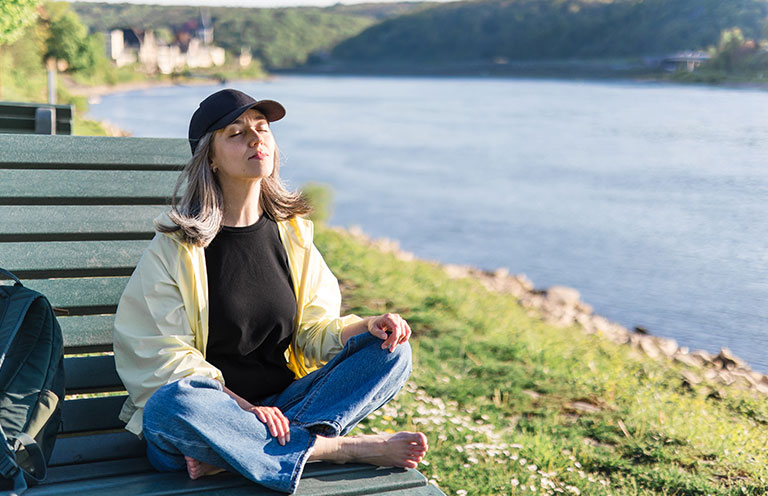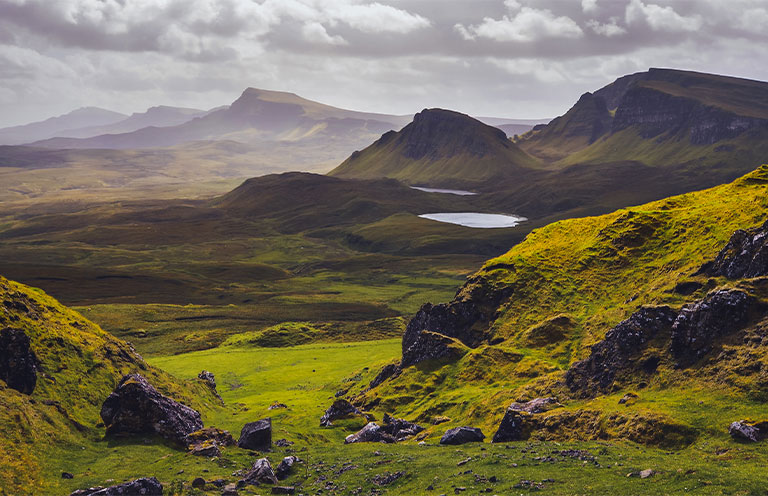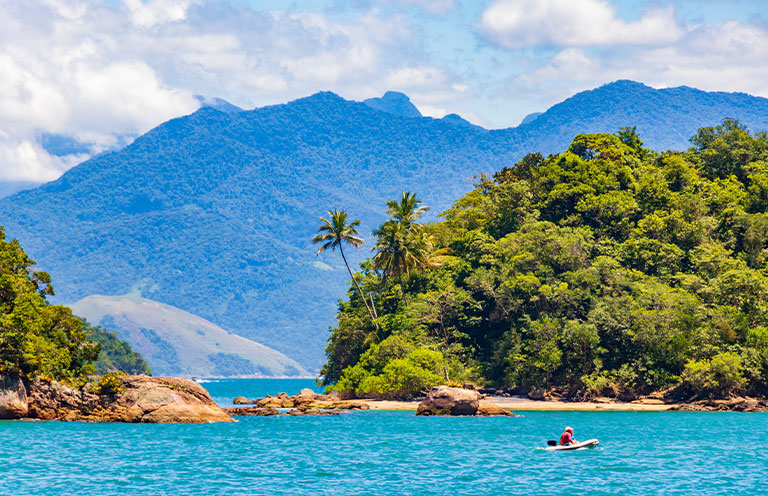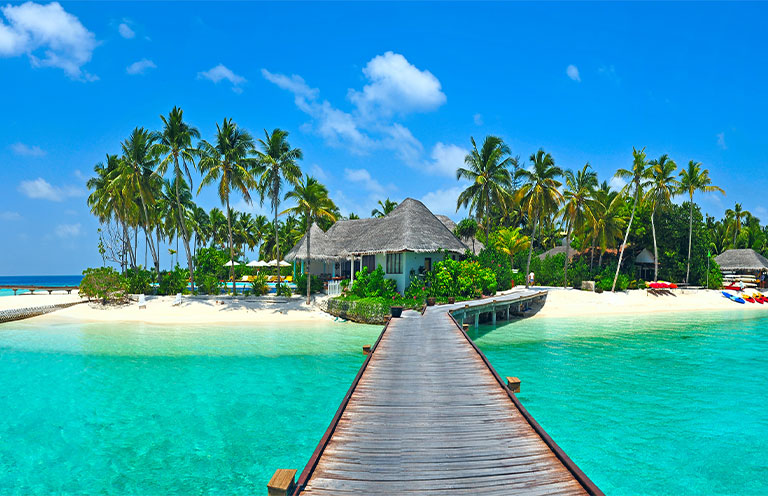Unplugged Travel: The Rise of Digital Detox Vacations
Travelers are disconnecting from their digital devices and reconnecting to their surroundings—and themselves. Here’s what’s behind the trend

It’s no secret that we Americans are reliant on—even addicted to—our smartphones, laptops, tablets, and other electronic devices. But a fast-growing number of travelers are discovering that when they force themselves to put their devices away, they can take in new settings, connect with the people around them, and engage in self-reflection in meaningful ways.
Enter the digital detox vacation, which encourages people to ditch their devices during their travels. That doesn’t mean that you can’t bring your phone or laptop on vacation (although some do choose to vacation completely off the grid). Rather, it means that you commit to at least significantly reducing your device use and screen time so that you can be more present in your vacation experience.

“Unplugging from your phone and computer can be very difficult, but our reliance on them is very unhealthy,” says AAA Travel Advisor Julia Phillips. People—young and old alike—can easily experience their whole vacation without looking away from their devices, adds Phillips. “Then they get home and say, ‘Oh, what a wonderful time I had. It was so nice!’” Yet, they experienced much of it through a screen.
For Phillips, digital detox vacations don’t just allow people to fully appreciate their vacations; they also give them a genuine break from their work and the everyday stresses of life. If your phone is still buzzing away in your pocket and you’re only a couple of clicks away from being transported back to your office during your vacation, you risk getting the rest and relaxation you need for your overall well-being.

The benefits of unplugging on vacation
The impact of a digital detox vacation lasts well beyond the trip. After taking an extended break from technology, travelers can build a better relationship with it after they’ve returned home as they continue to manage and monitor their device use while focusing on their personal wellness and relationships.
“It’s not only about getting out and having a vacation,” says Phillips. “It’s also about renewing the mind. It’s very important to come back from your holiday refreshed, not just mentally and physically—but in some cases, spiritually, too.”
Studies have shown that reducing screen time can improve mental health, including lessening stress levels and improving sleep quality.

Types of digital detox vacations
The definition of a digital detox vacation can vary widely, from resorts with device check-in desks, to wellness retreats with no Wi-Fi or TV, to completely off-the-grid cabins in the wilderness.
On a recent trip to the Scottish Highlands—a popular digital detox destination—Phillips experienced an impromptu unplugged travel experience.
“The WiFi is so sporadic up there. I had no reception,” she says. “So, I just completely unplugged from the world. I got back in touch with nature. I suddenly became more aware of what was important.”
While AAA Travel features nature-centric vacations across the United Kingdom countryside, there are a variety of other destinations that support screen-free travel, including the following.
Ulko-Tammio, Finland
Ulko-Tammio is a phone-free island in the Gulf of Finland where visitors are encouraged to disconnect and immerse themselves in nature.
Eremito, Italy
Eremito is a spiritual retreat located in a restored 14th-century monastery in Umbria. Guests enjoy minimalist rooms, silent dinners, and guided wellness programs.

Ilha Grande, Brazil
Ilha Grande is a car-free island with no roads—just rainforest and beach trails—making it ideal for a laid-back, screen-free tropical escape.
Dientes de Navarino, Chile
The world’s southernmost trekking circuit winds through Chile’s Dientes de Navarino—remote, rugged, and a place where adventurers may feel like they’re the last people on Earth.

The Maldives
Many luxurious beachfront resorts offer digital detox packages with yoga, spa treatments, and screen-free relaxation.
Wyoming, Montana, Idaho, and Alaska
Ranches across these states, along with Alaska’s remote wilderness, offer off-grid stays with hiking, horseback riding, and starlit skies.
. . . . .
Digital detox vacations are “the wave of the future,” says Phillips, especially vacations tailored to entire families. “[Today’s travelers] want memories and experiences they haven’t had before,” she says. “They want to be immersed in different cultures. They want to experience life. That’s what is really healing—not only for your body but also your mind, spirit, and soul.”
